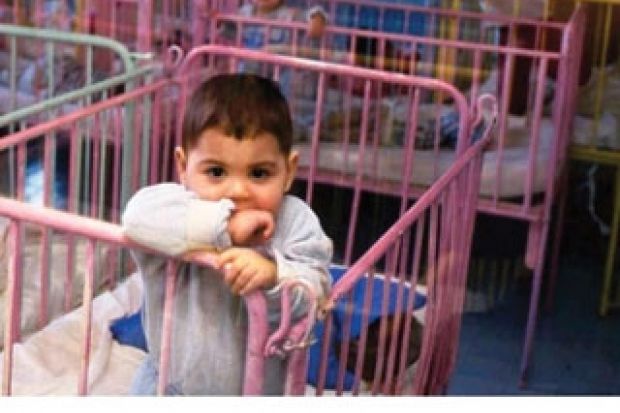Over the past 70 years there have been many studies documenting the harm caused to children raised in institutions, and the benefits to them of increased stimulation. The younger the child at intervention, the greater the benefit. In many of these studies, however, the children who stayed longer in the institution would have been those less preferred for adoption and likely less suited for enrichment, making it impossible to conclude that the age at which enrichment was offered was a factor in the reduced benefits.
Of course, few researchers would seek to randomly assign infants either to adoption or to continued institutional deprivation. But in 2001, the US-based scholars Charles Nelson, Nathan Fox and Charles Zeanah did just that. Their study involved 136 parentless children in Bucharest whom they randomly assigned either to the usual institutional care available in Romania’s overcrowded, poor-quality orphanages, or to foster parents recruited specifically for the project and who had received special training in providing loving care. There was also a control group of never-institutionalised children.
The study found that placing children in foster care, even relatively late in infancy (the average age was 22 months), brought benefits in a number of domains of cognitive and emotional functioning, including language, positive emotion and attachment. Families appear to have helped the process of brain development via their normal activities of caring for the child and providing verbal and emotional support. The success of parenting was greater the earlier it was provided.
This must have been a difficult study for the authors. The regime of Nicolae Ceaușescu, which was overthrown in the 1989 revolution, criminalised abortion and contraception and pressured women to have children, with many such children then turned over to state institutions to be raised in horrific conditions. Although such institutions have since improved, Romania’s high level of infants in state care has continued into the 21st century. Marked by a rigid schedule of feeding and lack of social interaction, such orphanages appear unable to provide the human social environment necessary for healthy development.
Readers may find the authors’ efforts to describe their ethical dilemma in carrying out this study among the most interesting parts of this volume. Grant funding made it possible to pay for more extensive and better-trained foster care than would otherwise have been possible and, given the alternative, assignment to the foster care group must have been seen by scientists and children alike as a relief. It is clear that the research team cared deeply about the plight of these children.
A major conclusion of the study was that high-quality, child-centred foster care is better than institutional care. On many measures, including IQ, the less time a child was in institutional care (under the age of two), the greater the recovery, although in no case was it enough to allow children to reach the level of those reared in parental homes. There were also intriguing changes in measures of brain function pointing to improvement for those placed in foster care before age two. Finally, changes were observed in the molecular signs involving telomere size that have been related to survival in old age. These important results fit with increased evidence in neuroscience for brain plasticity in children and adults, however raised.
Romania’s Abandoned Children indicates that access to foster care has greatly increased in the country since this research took place, but according to a 2011 report by the European Roma Rights Centre, children of this ethnic minority remain over-represented in state institutions. The publication of this book could help to spur efforts to offer foster care and adoption in Romania and in other countries as well.
At some stage all parents ask themselves, does it really matter what I do? This book has a clear answer: when caring parenting is absent, it evidently makes a difference.
Romania’s Abandoned Children: Deprivation, Brain Development and the Struggle for Recovery
By Charles A. Nelson, Nathan A. Fox and Charles H. Zeanah
Harvard University Press, 416pp, £22.95
ISBN 9780674724709 and 26079 (e-book)
Published 31 January 2014
Register to continue
Why register?
- Registration is free and only takes a moment
- Once registered, you can read 3 articles a month
- Sign up for our newsletter
Subscribe
Or subscribe for unlimited access to:
- Unlimited access to news, views, insights & reviews
- Digital editions
- Digital access to THE’s university and college rankings analysis
Already registered or a current subscriber?





